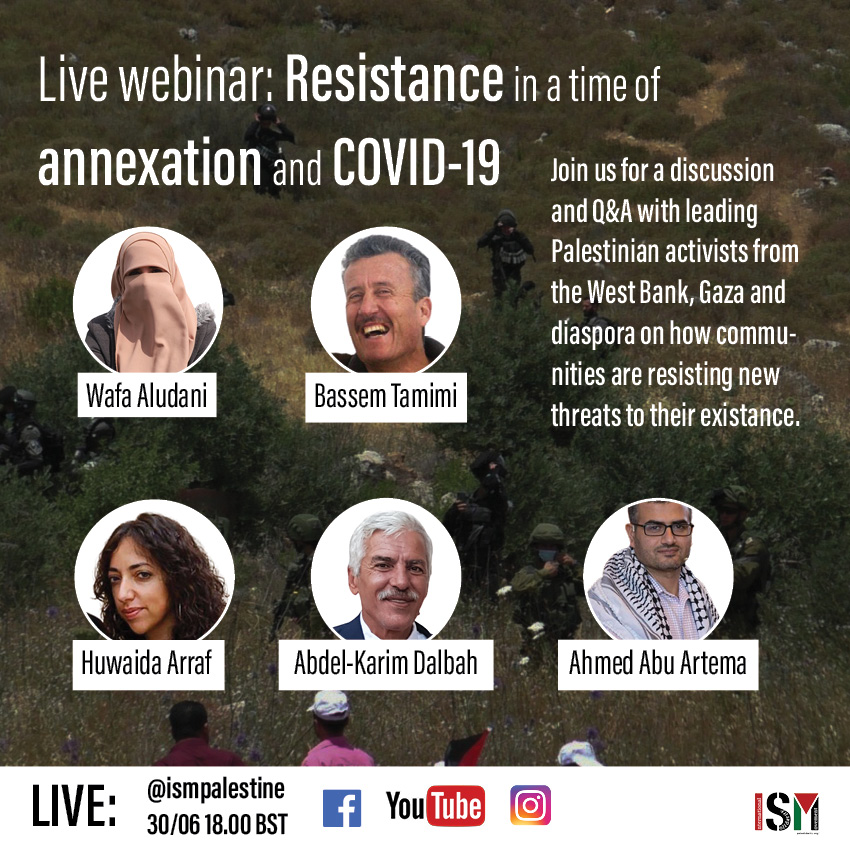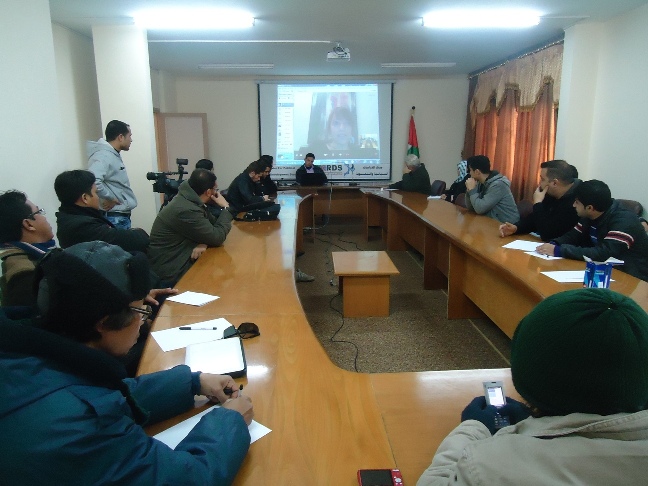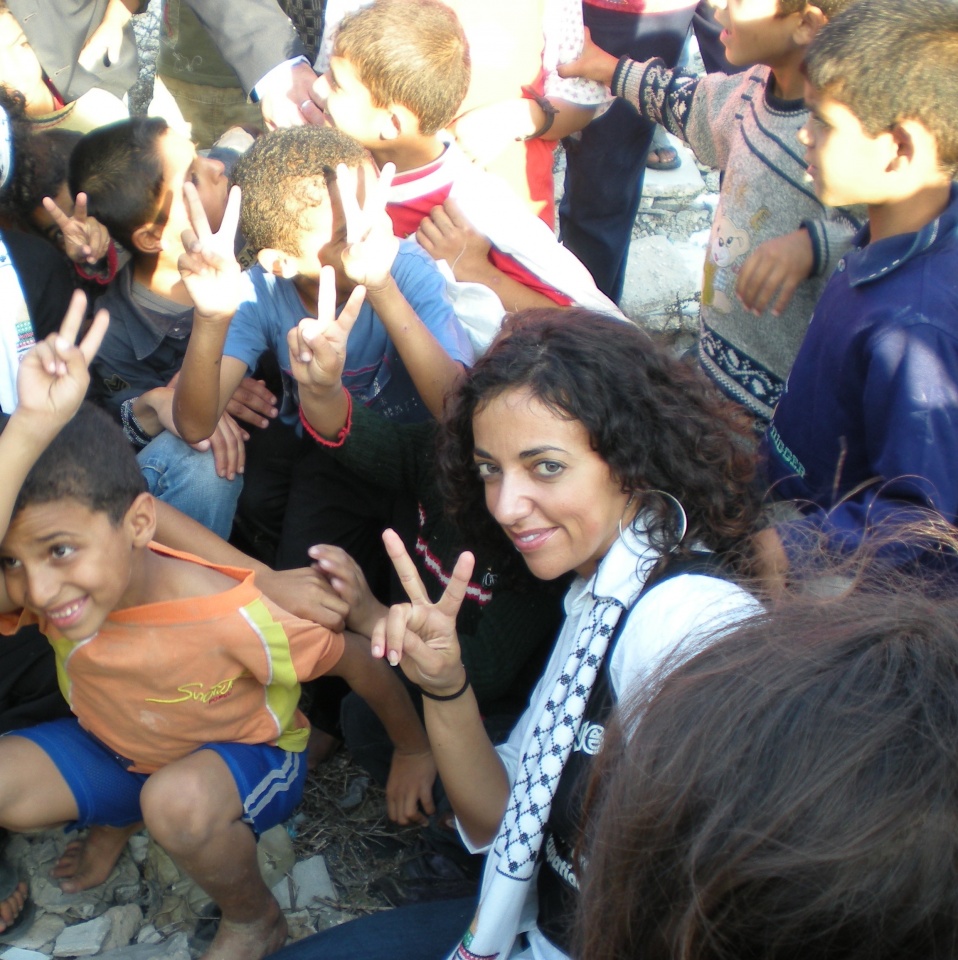Tag: Huwaida Arraf
-

Resistance in a time of annexation and Covid-19 – an ISM webinar
ISM will be hosting a webinar on June 30th, Tuesday 20:00 Ramallah time, on annexation, COVID-19, resistance and international solidarity with the Palestinian struggle for equality and justice.
-

Arraf to CPDS: Israel losing the PR battle
by Yousef M. Aljamal 30 January 2012 | Centre for Political and Development Studies For the third week in a row, the Centre for Political and Development Studies (CPDS), a Gaza-based think tank, held a video link to explore issues related to the Palestinian cause, with the presence of Palestinian and international activists. Huwaida Arraf,…
-

Huwaida Arraf: ‘They have lies to spin; we have truths to tell’
Yousef M. Aljamal 30 October 2011 | Mondoweiss Yousef M. Aljamal of Gaza’s Center for Political Development Studies interviews with Huwaida Arraf, cofounder of the International Solidarity Movement: Aljamal: First, could you please give us a brief introduction about ISM? Arraf: The International Solidarity Movement (ISM) is a Palestinian-led movement committed to resisting the Israeli occupation of Palestinian…
